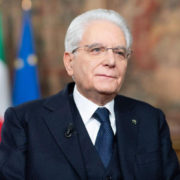Italy is doomed for a few months of instability. Its management in the next few months is perhaps the best one hope for, although worse could happen. Here is why.
The list of Italian problems is very long, but in the spirit of economy in a nutshell we could sum them up as follows: Civil justice is too slow, and provides no guarantees to an investor. Perhaps it is also because there are too many solicitors soliciting business and sending the system astray, and judges who sometimes interpret the law with too much latitude, partly because the legislature doesn’t rule well or enough.
There is too much bureaucracy and too many taxes. Taxes are about 50% of the GDP and actually the state provides jobs to some 50% of the people. To reduce taxes, you have to reduce the bureaucracy and vice versa. You must simplify how you can start and close a business. People should not have handouts from the state but be helped to quickly start companies, not be disturbed, and pay a little tax.
The South has to be linked to the North, become the gateway of Africa and Asia to central and North Europe, as it was for centuries. Incentives have to be introduced to start businesses there (tax reductions, cheaper university tuition, et cetera).
But the situation is so complex and so deeply rooted that none of this can be addressed only through a strong government that would change the constitution, which is geared for different times. Then communists and fascists had to have a representation in Parliament but no chance to join the government. Therefore, their votes were frozen and the Christian Democrats, even short of an absolute majority, could govern quietly for about half a century. After the end of the Cold War that freeze has melted and the constitution doesn’t work anymore.
These are not simply Italian problems, but, because of the size of Italy, they rip Europe apart.
Former Democratic Party chief Matteo Renzi was right in seeing the faults of the constitution, although he was very wrong in the way he chose to trying to push it through.
On top of that, Italians should not litter, must follow a line, should tell what they honestly think is the truth (not self-serving lies), and should not cut corners. In a few words, they should have a greater sense of civic duty.
Now, it is unclear whether M5S and League are simply aware of these issues. There is not one government, but three governments, with three different policies.
One basically wants to give money to buy votes (M5S), one wishes for a flat tax (League), and one, made of the few left remains loyal to President Sergio Mattarella, who is trying to hold the fort –plus odds and sundries.
There is no unitary thinking but three spheres of influences respected with some difficulty. It is not one body, it is a monster of Frankenstein, made of different body parts. It should not live, yet it does, although it cannot thrive.
The reason is that power weakens those who don’t have it, as former DC leader Giulio Andreotti said, so greed for power is holding this coalition together.
Against this backdrop, the present task is to have a budget law that is tolerable with the EU and yet will make the pro-EU (the old establishment, blamed by the people for all of Italy’s problems) scream. Those screams will prove to the people the government is right and new votes will go to the populists, M5S and League. It is a fatal trap for those trying to be sensible, because sensible in Italy now has little currency.
Since the government has no medium- or long-term program, it will likely fall around the time of the future EU elections. The two parties stand to gain over 60% of the vote, according to present opinion polls.
President Mattarella could oppose it, but it would be risky for him and the country. Refusing the elections against some 50% of the parliament and against perhaps more than 60% of the vote could weaken the presidency and lead to systemic crisis.
The way forward perhaps should be to be cold minded, bring tensions down and hope to concentrate on the long term issues bogging Italy down and tearing Europe asunder. But most parties won by launching their troops on a war path, there are no spoils in peace. Then the only move is forward, in the hope that Italians will become fed up of war and will seek a party of peace; or that one will be a clear winner and will impose his peace on the others. Yet even then the future government will have to make peace with all the people who have been won, which is never easy after a war.
In any case it will take time, and for the time being perhaps management of instability is the best one can hope for.






Thank you. An excellent article!
The sane suggestion is that all that has to happen is that Italy ceases to be Italy and Italians cease to be Italians and all will be well. This is an unlikely solution, in which case the problem, though neatly stated, is not the problem that presses. So long as the powerful are suited by the legal system and its protracted partialities, and the bureaucracy by their salaries and pensions, the noise will change, the game will not. You do not have to love Italy to see that it is incurable, but it helps. Frederic Raphael.